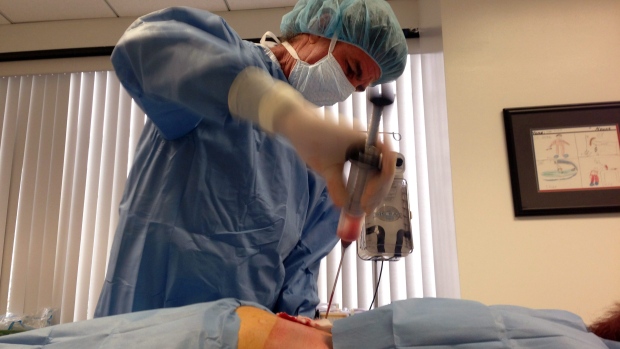Dec 12, 2016
Bayer, Versant to invest US$225M in Toronto-based stem cell therapy firm
Reuters

German healthcare group Bayer said on Monday it has set up a joint venture with U.S. life sciences venture capital firm Versant Ventures to invest US$225 million in a stem cell therapy firm based in Toronto.
The companies said the financing, one of the largest ever for an initial round of venture capital funding for a biotech company and the biggest of its kind in Canada, will allow scientists to focus on research and development of treatments for cardiovascular disease and neurodegenerative disorders over the next four years.
"The scientists can really focus for four years on bringing this a huge step forward, instead of struggling for financing every other year," said Axel Bouchon, who heads the Bayer Life Science Center.
The venture, BlueRock Therapeutics, is expected to initially employ 30 to 40 people in Toronto, and 70 to 80 people worldwide. It will be based primarily out of Toronto's MaRS Discovery District, one of the world's largest innovation hubs.
BlueRock is partnering with the Center for Commercialization of Regenerative Medicines (CCRM), also based at MaRS, to help scale production of various stem cells, one of the key elements that executives say sets the venture apart.
"We continue to be more and more bullish on Canada because of the early successes we've seen," said Jerel Davis, a managing director at Versant Ventures, which has invested in seven new firms since entering the Canadian market three years ago.
"We go where the science is best. We believe Toronto is emerging as a center of excellence for regenerative medicine."
Toronto, where stem cells were first identified, has one of the highest numbers of stem cell researchers in the world within its scientific community.
BlueRock will develop a number of projects with an initial focus on cardiovascular diseases, the leading cause of death in the world, according to the World Health Organization, and neurodegenerative disorders, such as Parkinson's and Alzheimer's diseases.
"(You have) something that is actually chronically treated at general hospitals and so on, versus you have something that is a true, let's hope, once-off treatment and then it's cured," said Bouchon. "The whole paradigm will shift."
The company, which will also have research and development operations in New York and Boston, hopes to launch its first clinical trial by 2018, executives said.


